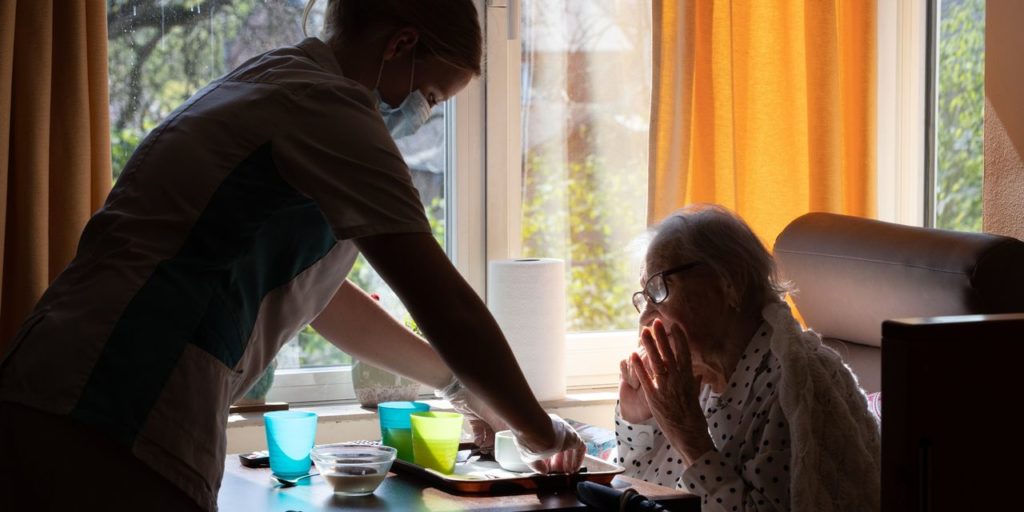The Flemish parliament’s commission looking into the reaction to the coronavirus epidemic is today expected to approve its report for the Flemish government, which contains no fewer than 95 recommendations on dealing with a second wave.
The commission’s chair, Björn Rzoska (Groen) revealed some of those recommendations this morning on VRT radio, in particular those which concern the care homes.
While hospitals are the responsibility of the federal government, care homes come under the authority of the regions, and in this case Flemish health minister Wouter Beke (CD&V).
In Flanders, as in the country as a whole, care homes were extremely hard-hit according to every metric. The situation has been described in detail by two reports, by the Flemish ombudsman service and by Doctors Without Borders.
Now, as the second wave of the epidemic appears to be approaching (or already upon us, depending on who you ask), the commission has almost 100 recommendations for how to avoid disaster second time around.
Among them: no more lockdown for care homes. First time around the homes were closed to all visitors, which led to serious emotional problems for residents and families alike. Witnesses speak of couples in homes being split up as one and then the other came down with the disease; residents getting sick and dying alone without ever having contact with their families; and families able to visit only online or through a pane of glass in a day-room window.
The commission recommends a guarantee that every resident of a home will be able to receive visits from at least one personal visitor a week. Depending on the medical situation, home should use a system of colour coding (red, orange and green) as applied to foreign travel and from September to schools.
Residents with dementia should not be isolated unless absolutely necessary, and informal carers should have their status recognised, for example if restrictions come on non-essential travel.
Staff in homes should be able to have regular testing in a drive-through testing facility, and homes should be supplied with a stock of adequate personal protective equipment sufficient to last three months. Not only that, but the region should build up a separate strategic stock of three months’ worth of PPE.
The federal government already has such a stock, and Beke has already said the government his plans to follow suit.
In general terms, the recommendations include training in hygiene and infection prevention for all care home staff, including those not directly involved in health care. And improvements have to be made on communication, as well as administration, with meetings, work groups and task forces kept to a strict minimum.
The commission was due to start meeting to approve the report this morning. Technically, it has to go before the full Flemish parliament for approval, but that body is in recess for the summer.
However since the report has the support of committee members from majority and opposition alike, the plan is for the government to make headway where that can be done during the summer months.
Alan Hope
The Brussels Times

